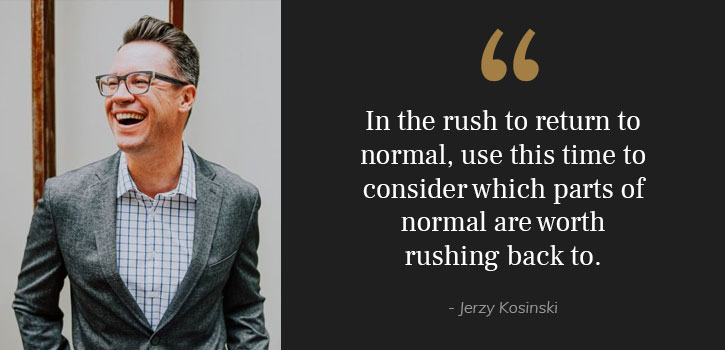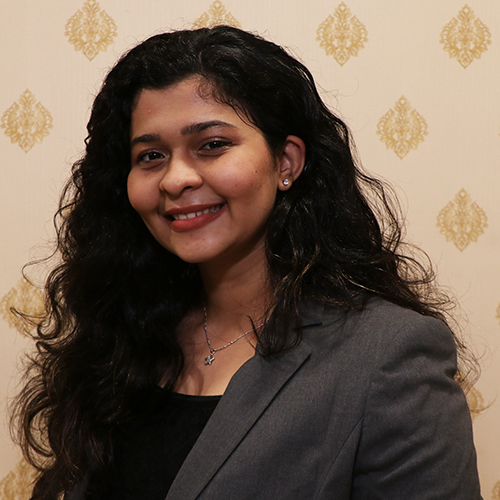Will wellbeing be the new luxury trend after Coronavirus?
- 25th Jun 2020
- 1945
- 0

“In the rush to return to normal, use this time to consider which parts of normal are worth rushing back to.” ~ Dave Hollis

The culture of excess has driven the young to push themselves into strenuous work for years now. The hustlers are celebrated as they work relentlessly, often ignoring the downside of this attitude. The lack of close bonds and a fulfilling support system, utter neglect of personal needs apart from work and leading a suppressed lifestyle that leaves a void in the soul - the empty space often filled through compulsive shopping. No matter how much a person tries to be come an overachieving machine, at the end of the day, she’s only human. This glorified hustle culture is detrimental - physically and mentally - whose negatives cannot be whitewashed with expensive essential oils or weekends away playing golf, no matter however much the luxury industry wants you to believe so.
Corona Virus has disrupted the “Go Hard” lifestyle of the regular hustler. The lockdown has forced people to pause for a bit. To just feel. Introspect and realign their priorities. It has given time to people to reconnect with relations that were dying because of ignorance - even one with themselves. The millennials and the Gen Z who are the upcoming major target audiences for luxury brands were already demanding meaningful experiences over conventional prestigious ownership of luxury items. The importance of true, deep wellbeing is permeating the lives of luxury clients as they’re waking up and acknowledging the issues previously buried deep under the guise of consumerism - anxiety, mental distress and its physical manifestations, insomnia and other effects stemming from a lack of self-care.
The luxury market thrives on the mindset and attitude of the affluent customers. As long as they are financially balanced and profiting, they allow indulgence and extravagance. In these uncertain times plagued by recession and collapse, nobody is certain about their income. The luxury industry has already taken hit and BCG Altagamma has predicted a loss of 40 billion pounds sales in 2020. According to YouGov Affluent Perspective survey conducted in early April, the affluent shopper is connecting with friends and family via their devices (57% doing more), decluttering their homes (45%), crafting or hobbies (35%), spending time outdoors (26%) and exercising (23%). Decluttering involves disposal of futile, unproductive things and this harsh appraisal of overflowing closets will also translate into scrutiny while making purchases in the future.
Although the rich clientele would return in some time, the upcoming, aspirational young consumers upon whom luxury brands often rely to keep their brand impelling, will take a hard hit. This group, termed as HENRYs (high earners not rich yet) by Pamela Danzinger, although without the spending power of the affluent, way outnumbers them as a group and forms an important part of luxury labels’ billings. However, the sudden unemployment and the uncertainty about the future, combined with a lifestyle and mindset shift, is leading to reprioritising of their needs and thus, compelling the luxury industry to undergo profound revolutions.
Luxury labels have often centred their communication around the fourth level of Maslow’s Hierarchy of Needs - self esteem. It has always been about the status and the prestige, the fine craftsmanship and the illustrious expertise. With the Covid-19 threatening the two basic levels of physiological and safety needs, people are realising the value of wellbeing across dimensions - physical, emotional and financial. “Health is wealth” is an age old phrase that people are actively engaging with over the one-dimensional nature of purchasing luxury for stature. Post-pandemic, the extravagance and opulence of big luxury logos will seem poor in taste and an emphasis on the authentic and sincere will increase. Already, luxury brands are capitalising on wellness-positive PR. Prada, for instance, donated two ICUs each to three different Milan hospitals.
The comfort of home is being replaced by work stress as everyone has started working from home. Any sort of break offered by the luxury of the soft bed at home is now overthrown by strain and anxiety as the same soft bed has become one of the instruments in propelling their profession. In all of this, the $4.5 trillion (as of 2018) Global Wellness Industry is booming. To combat the tensions, home wellness routines and habits are kicking off. Long, relaxing baths with scented soap and fragrant shampoo; workouts at home by live-streaming a personal coach or fitness trainer; experimenting with and finding new hobbies like cooking and baking. Tastewise has already found that online mentions of stress-reducing rosemary are up 114% from last year, and calming camomile 81.5%. Fermented foods, which calm and balance the microbiome, are also rising in online mentions.
Elaborate beauty routines (as advised by personal favourite social media influencers) and at-home spa rituals are becoming popular by the day. The lockdown still offers opportunities to look good! Make-up brands are capitalising on the “on-point” eye make up looks as the masks cover other parts of the face. Remote working has also offered an opportunity to perfect the “stay-home professional poise.” Personal care brands offering home delivery are pushing for “self-care” packages and indulgent experiences because “you deserve it.” The demand for skin wellness in China led to the “beauty snacking” regimens. Coca-Cola developed a product line called “the wakeup face” — a late-night drink that promised to make consumers wake up looking beautiful. Other similar “food for skin” philosophies were also developed by Chinese food industry giants like Yili and Mengniu. In these stressful times, whatever brings you comfort, invest in it - whether its reading, binge-watching, cooking or beauty snacking.
Mental well-being services are seeing a rise since March as the world battles anxiety. US-based TalkSpace, an online therapy company, reported at the end of March 2020 that the volume of users on the platform was up by 25% since the middle of February. Indian cure.fit app started offering online therapy sessions at discounted costs. The technology of digitalisation has kept us sane in these trying months as the only way to keep in touch with the outside world was through electronic gadgets. However, the increased screen time and the pressure from social media have created new problems.
From the earliest stages of the pandemic, the luxury industry was deeply impacted by the spread of the coronavirus. Luxury brand owners felt the brunt first when Covid-19 spread through China, the country whose citizens accounted for 90% of global luxury market growth in 2019. The virus then reached Italy, the home-town of luxury. Many luxury brands are headquartered there or have key suppliers from Italy. When crisis mitigation required a national lockdown, the digital presence of luxury labels saved the day.
The Global Wellness Institute defines wellness as the active pursuit of activities, choices, and lifestyles that lead to a state of holistic health. People’s own active responsibility of their life, choices and relationships has been emphasised on in this time. They are going to stop and think “what value will this scarf or heels or watch bring to my life?” They are going to deliberate upon the relevancy of a commodity that doesn’t offer any genuine meaning to their existence.
As people’s self-sufficiency needs escalate, supporting emotional and physical wellbeing would become vital designs in the luxury industry. Rajeshwari Patwardhan
Rajeshwari Patwardhan


Comments
No comments yet.
Add Your Comment
Thank you, for commenting !!
Your comment is under moderation...
Keep reading luxury post